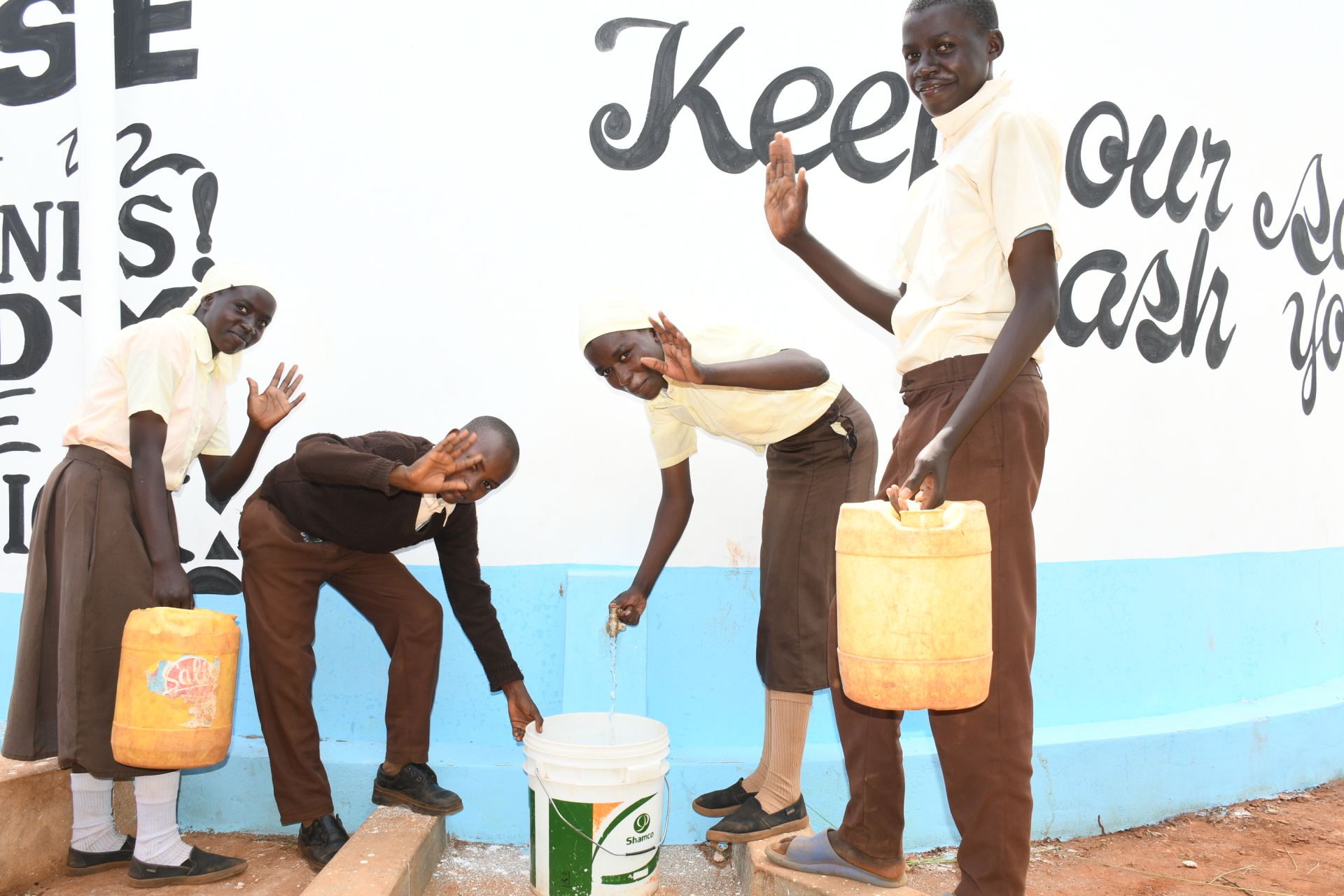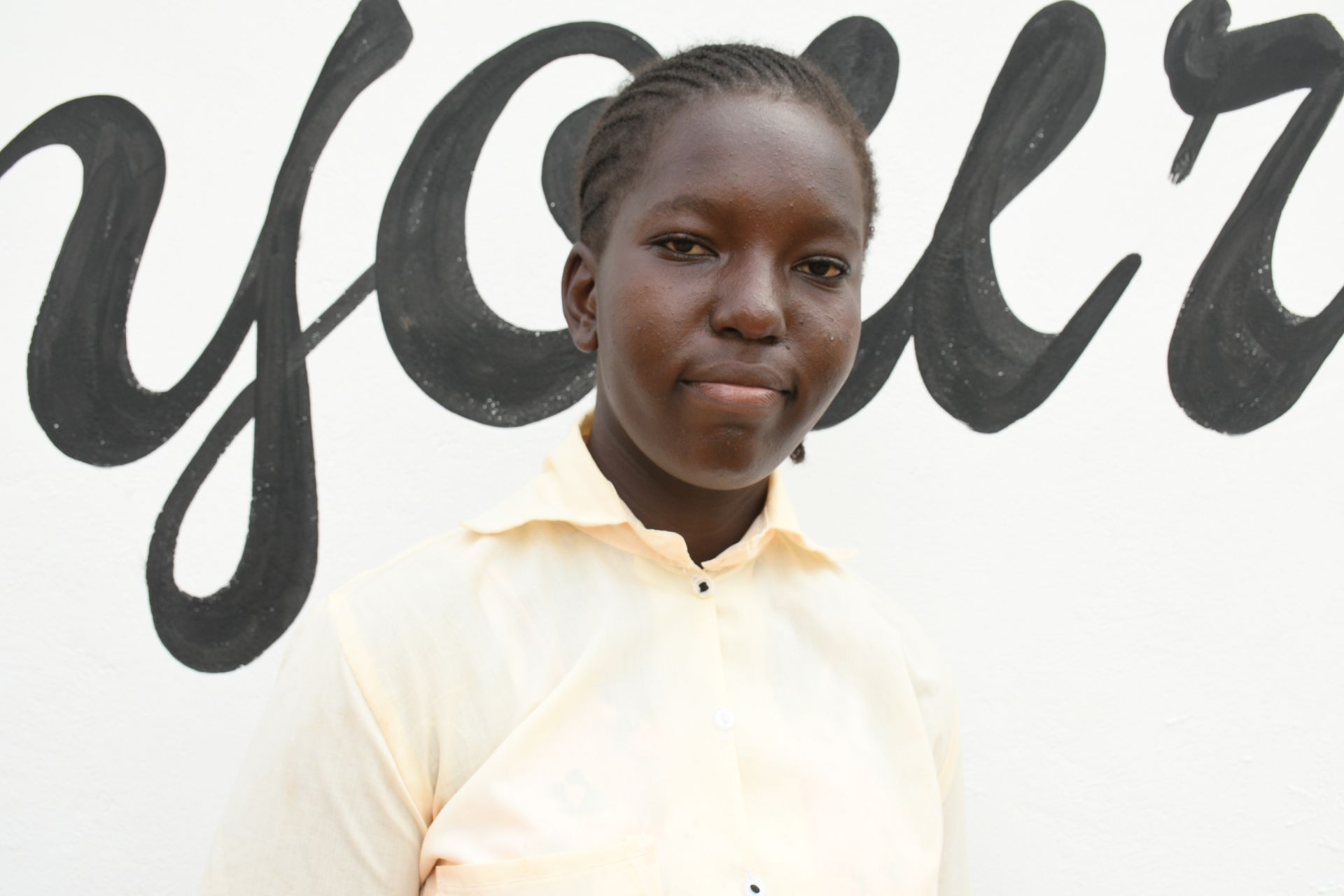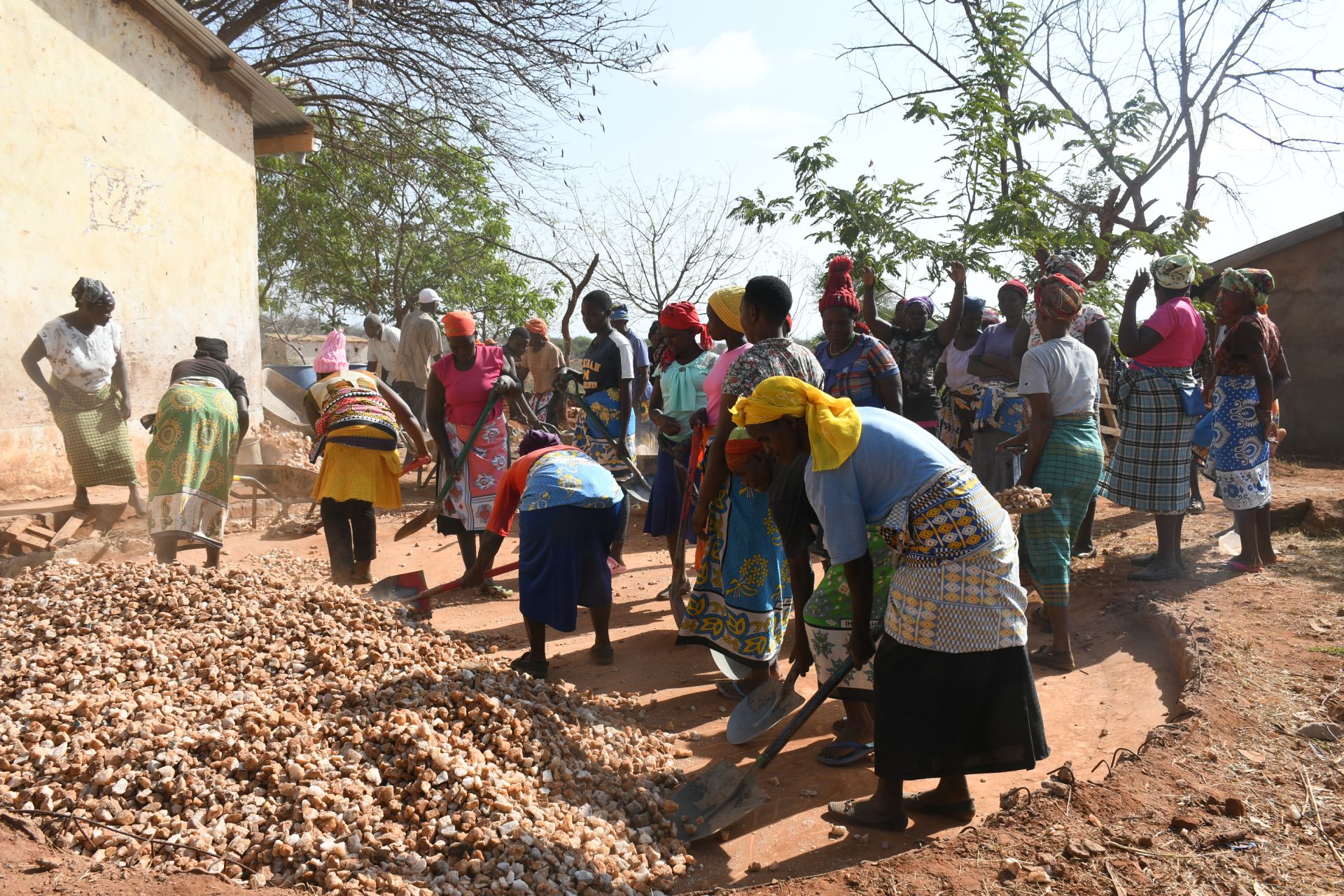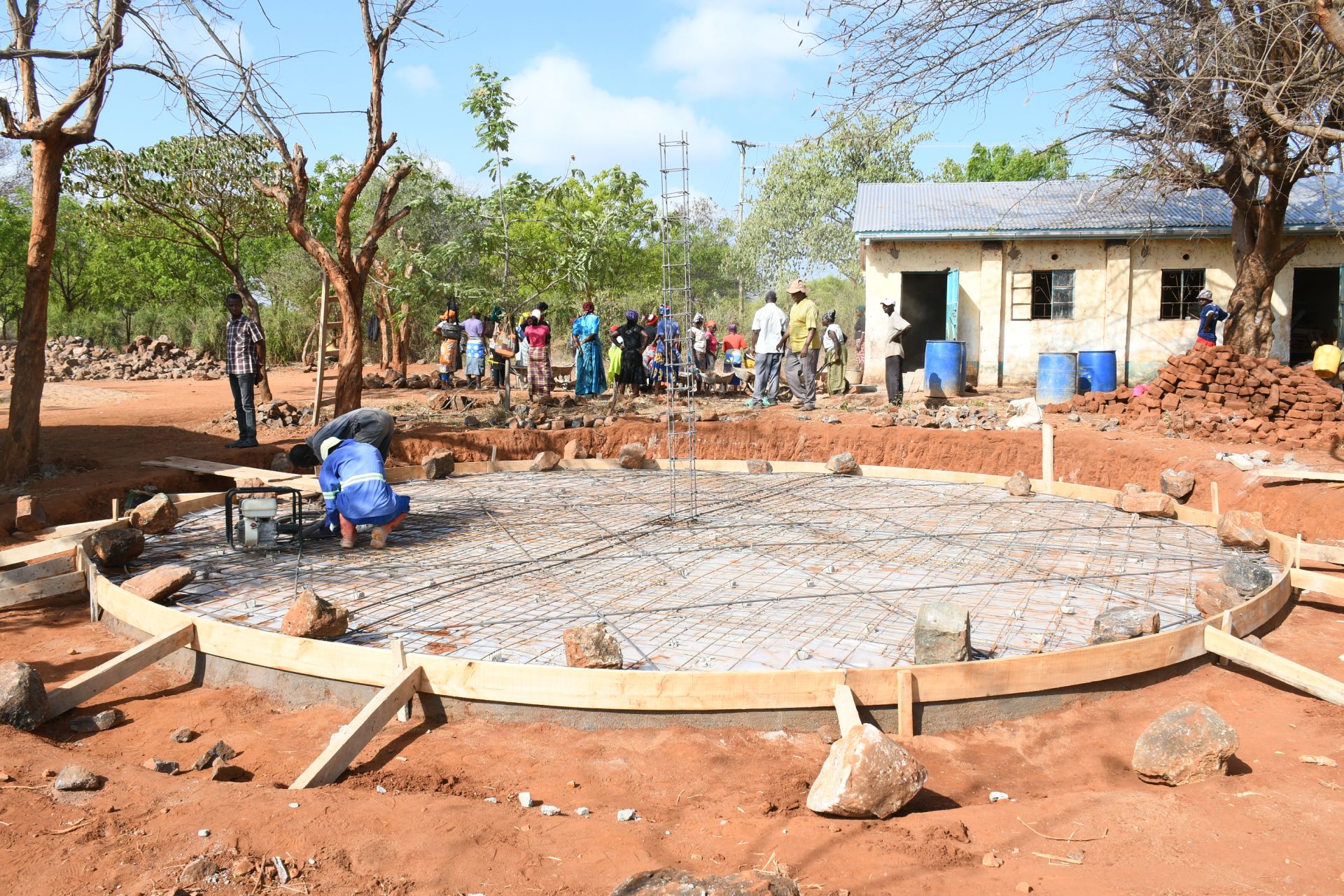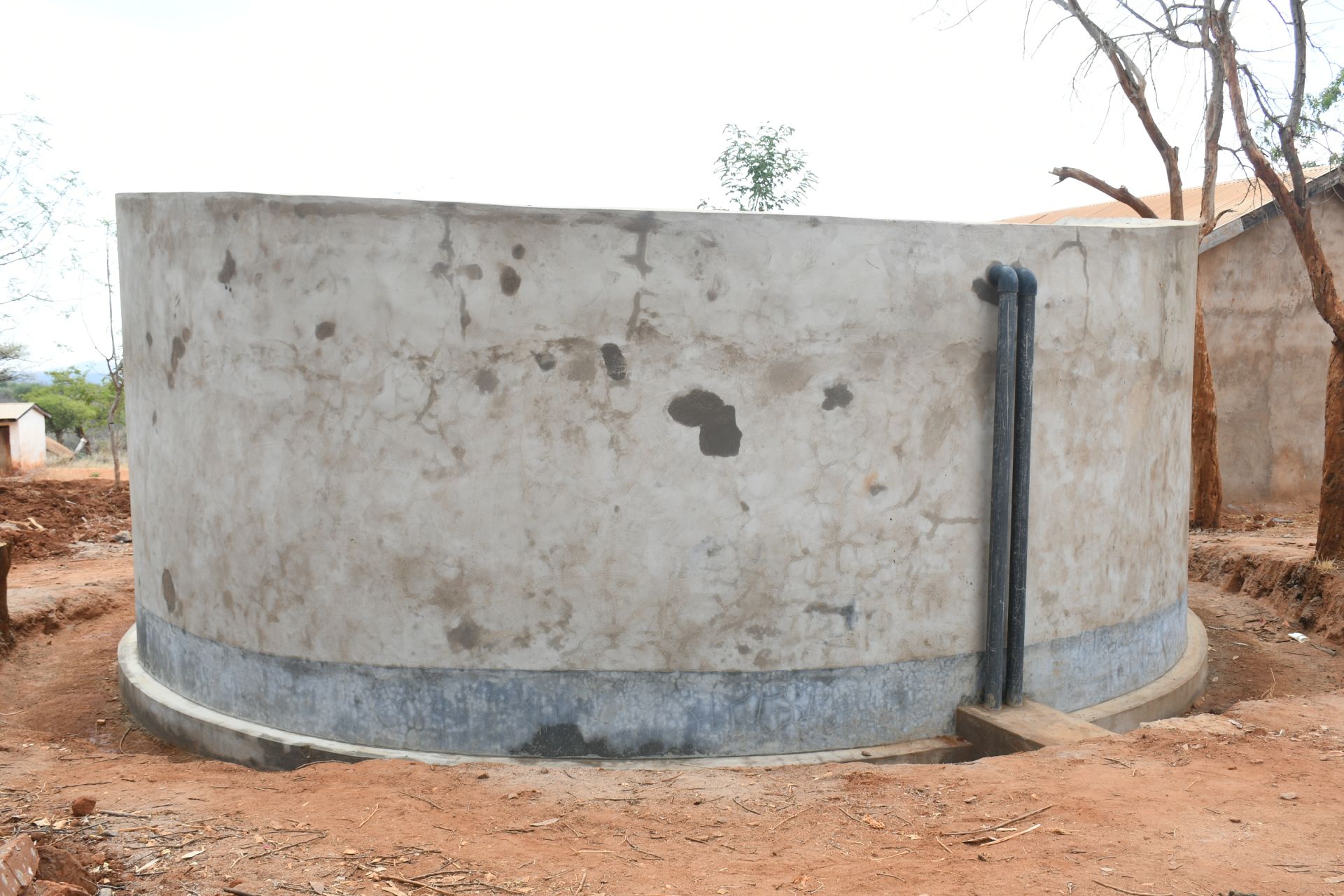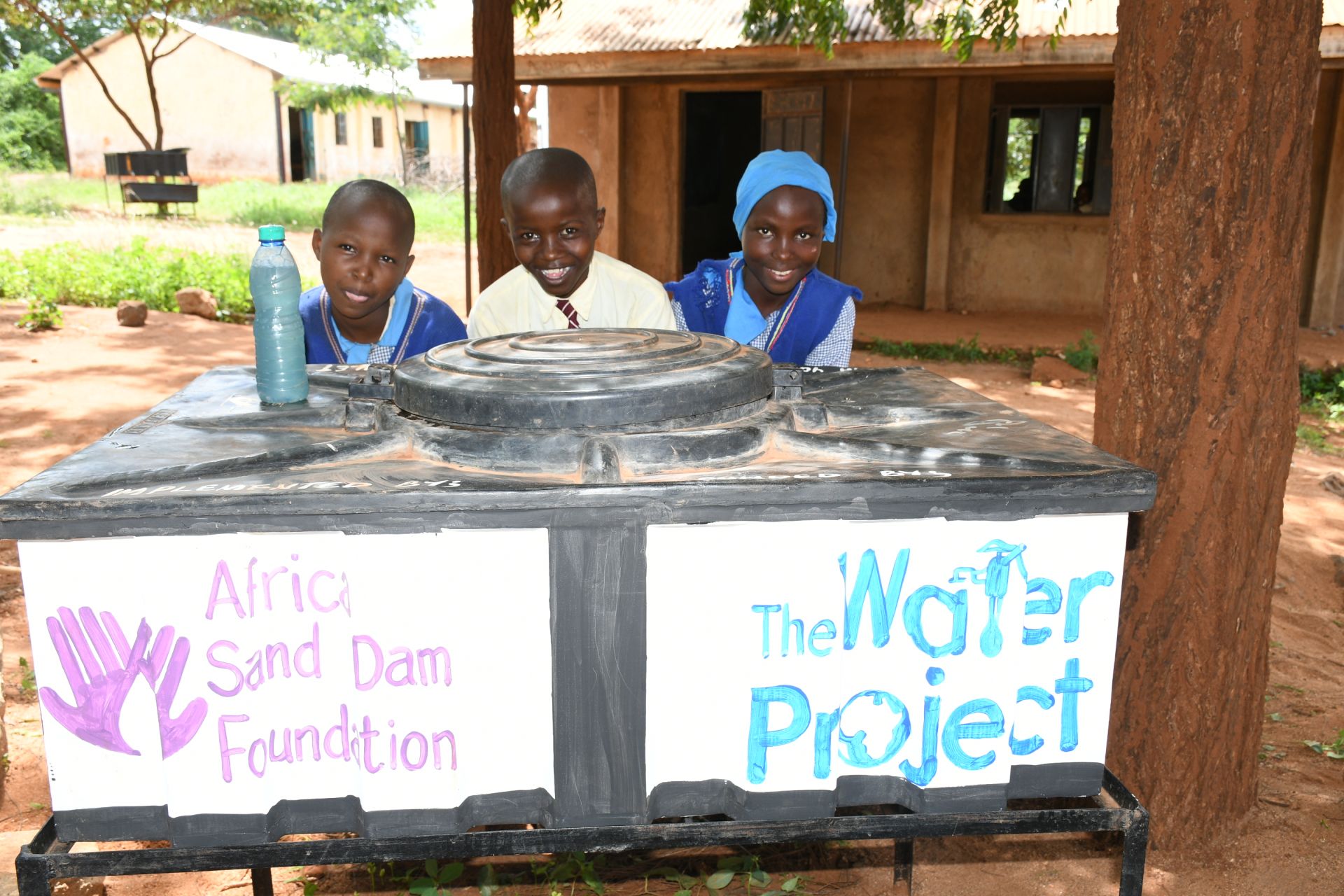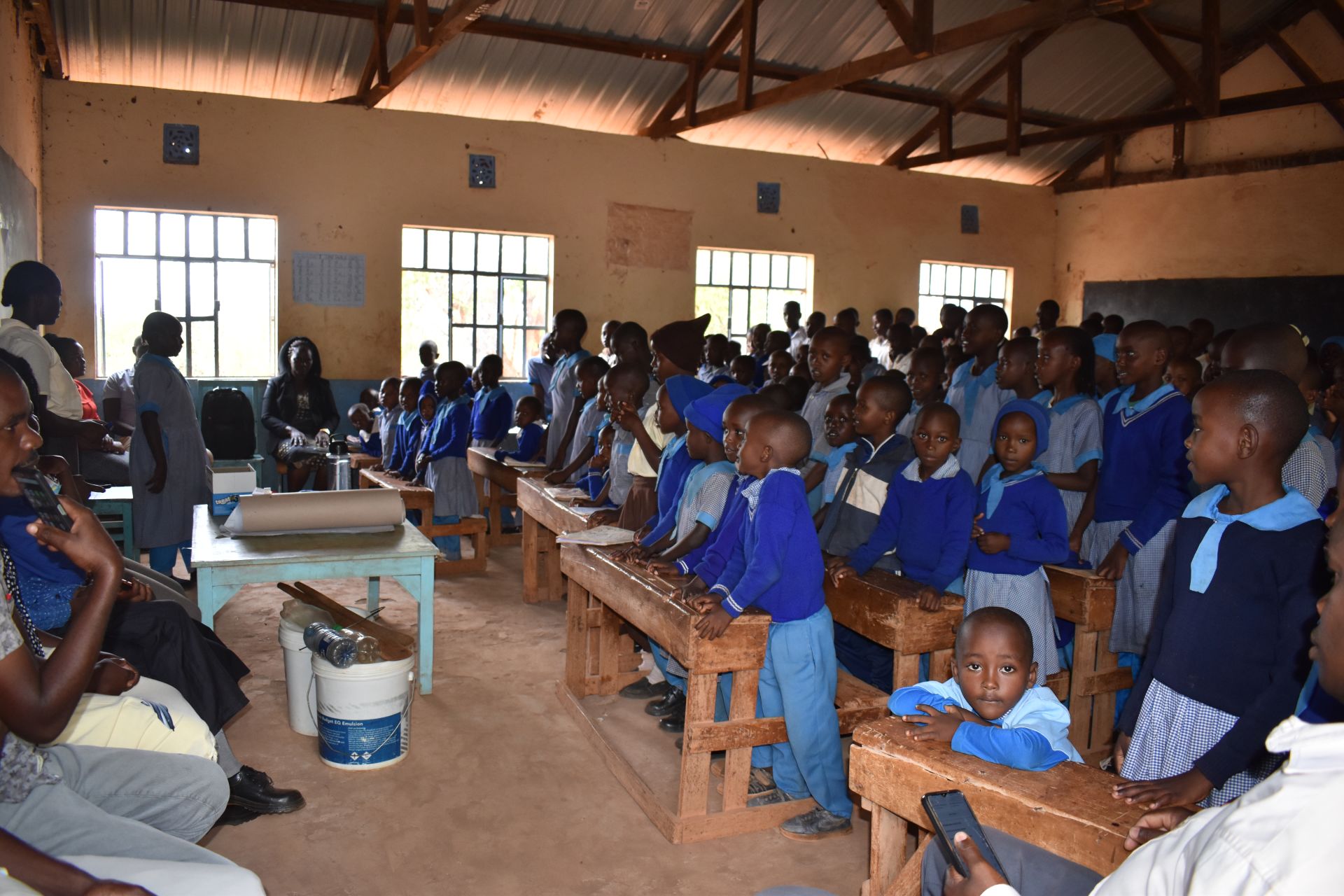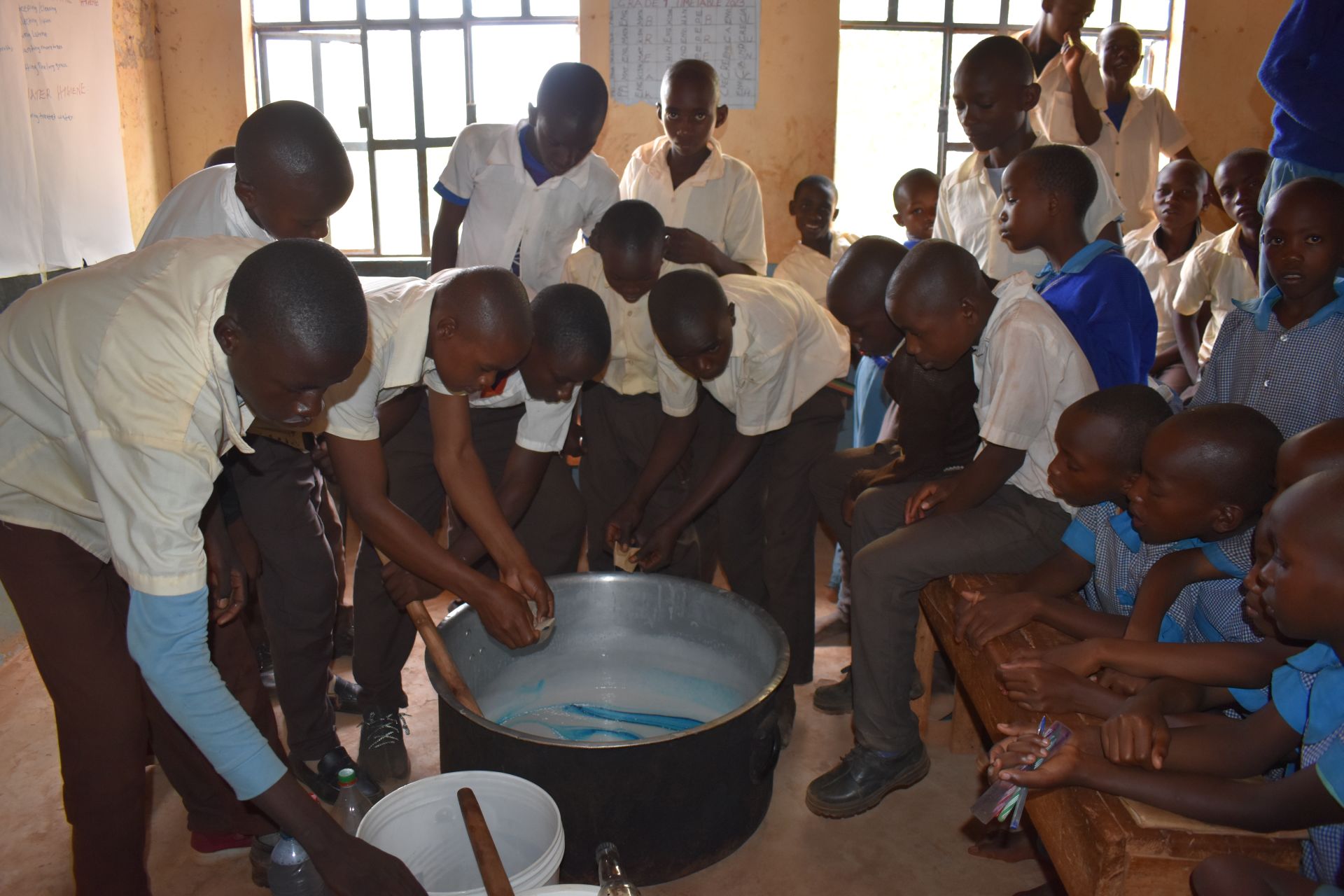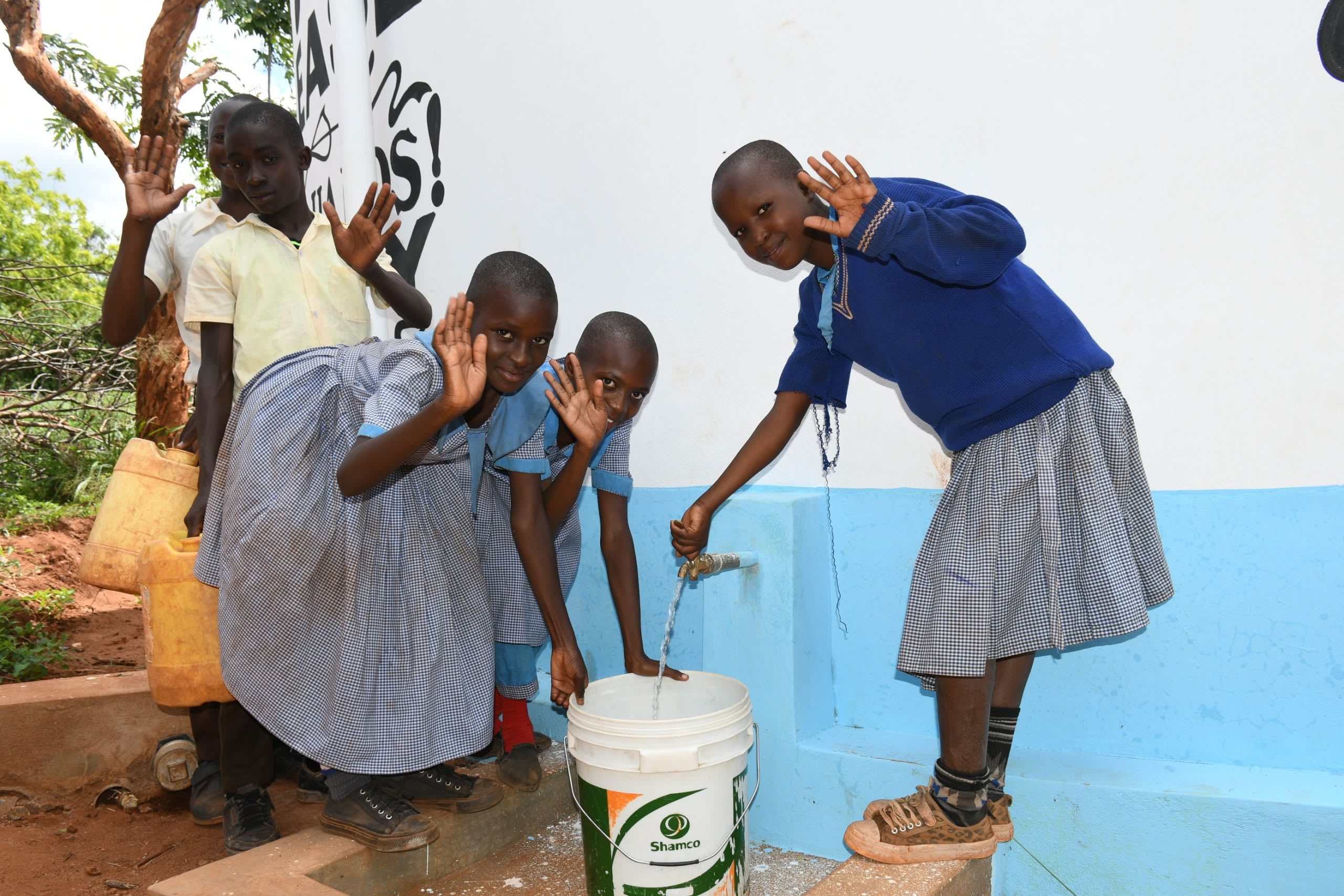The 264 students and staff at Mbangwani Primary School struggle to access sufficient water. Their current rainwater harvesting tank is too small to store enough water to meet their daily needs. With limited water on campus, students have to carry heavy water cans from scoop holes that provide unsafe water for consumption.

A scoop hole used for water collection.
48-year-old teacher Josephine Kimanzi shared how the water crisis affects her and her students every day.
"The learners have to carry water to school each morning after fetching it from the scoop holes in the seasonal rivers. They are often late and too tired to focus on their classes. Due to the immense water scarcity, the pupils often arrive late at school, and meals are often delayed, which forces the learners to resume their classes on empty stomachs. The contaminated water from scoop holes exposes the pupils to infections like typhoid, amoeba, and stomach aches. This leads to absenteeism while seeking treatment, which further affects the school's academic performance. Hygiene and sanitation have also been negatively affected since water is sparingly used," Josephine said.

Josephine.
The consequences of the school's water crisis are wide. With no safe options, students are forced to consume water that makes them sick. Even the water they pay for from vendors comes from contaminated sources.

Students get water from a water vendor.
"Contaminated water from scoop holes exposes students to diseases like typhoid, amoebic dysentery, and stomach aches. This increases absenteeism and affects overall student health, which can impact academic performance. The small water tank cannot meet the school's needs, leading to water shortages, delays in meals, and difficulties in maintaining hygiene. Students often arrive late due to the time spent fetching water, and the limited water supply affects their ability to focus in class," Josephine shared.
"When our pupils get sick, they often skip classes and find it hard to catch up with the others when they return," she added.
Students sacrifice their time and health in hopes of quenching their thirst. Staff members spend so much time trying to make sure everyone has water that they have even less time to teach.
"Managing and distributing water adds to the staff’s workload, diverting their attention from their primary responsibilities, such as teaching and administrative tasks. This has led to burnout and decreased effectiveness in their core roles. Unequal access to water or perceived unfair distribution has led to conflicts among students and complaints from parents. This has created a tense atmosphere and strained relationships between staff, students, and the community," lamented Josephine.

A teacher helping distribute water.
Without safe, sufficient water that is easily accessible, students will continue to get sick and miss class, teachers won't be able to provide a good education, and the conflict amongst the community as a whole will continue to grow.
"With a steady supply of clean water, the incidence of waterborne illnesses such as typhoid, amoebic dysentery, and stomach aches would decrease. Fewer students would need to miss school for medical reasons, resulting in better attendance and continuity in learning. Since students will no longer be burdened with fetching water or suffering from health issues, they will be less fatigued and more focused on their studies. This enhanced concentration will lead to improved academic performance and engagement in classroom activities," Josephine concluded.
Steps Toward a Solution
Our technical experts worked with the local community to identify the most effective solution to their water crisis. Together, they decided to construct a rainwater harvesting system.
Rainwater Harvesting System
A rainwater collection system consists of gutters that channel rainwater effectively into large holding tanks. Attached to buildings with clean, suitable roofing, these systems are sized according to the population and rainfall patterns. Water can be stored for months, allowing for easy treatment and access. Learn more here!
Handwashing Stations
Alongside each water source, we install two gravity-fed handwashing stations, enabling everyone at the school to wash their hands. Handwashing is crucial for preventing water-related illnesses within the school and community. Student “health clubs” maintain the stations, fill them with water, and supply them with soap, which we often teach them how to make.
School Education & Ownership
Hygiene and sanitation training are integral to our water projects. Training is tailored to each school's specific needs and includes key topics such as proper water handling, improved hygiene practices, disease transmission prevention, and care of the new water point.
To ensure a lasting impact, we support forming a student health club composed of elected student representatives and a teacher. These clubs promote hygiene practices schoolwide and keep handwashing stations well-stocked. This student-led model encourages a sense of ownership and responsibility.
Safe water and improved hygiene habits foster a healthier future for the entire school.

 Rainwater Catchment
Rainwater Catchment
 Rehabilitation Project
Rehabilitation Project












